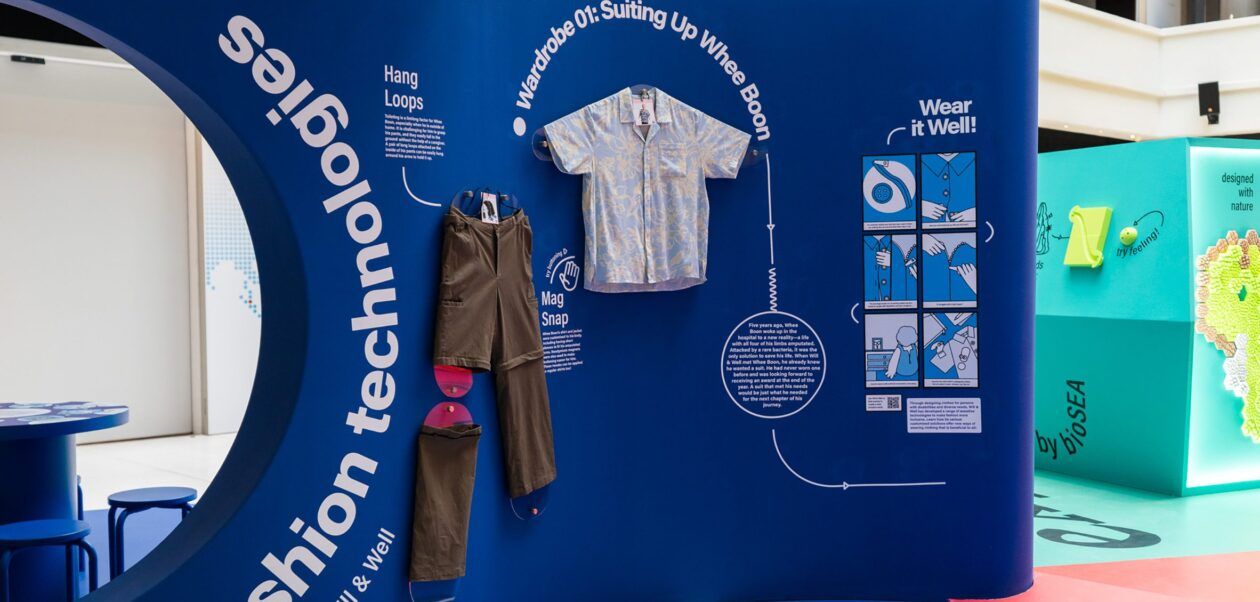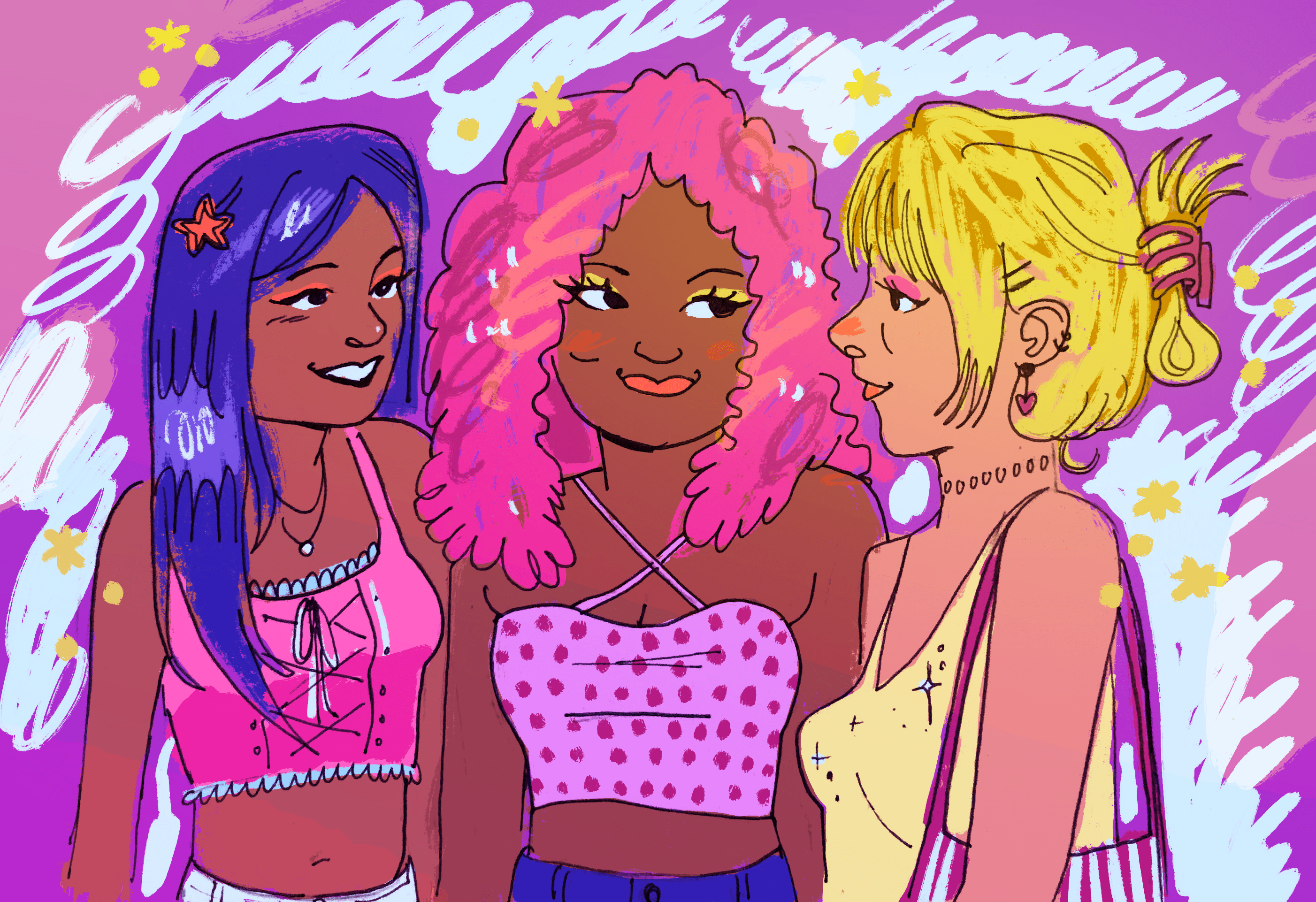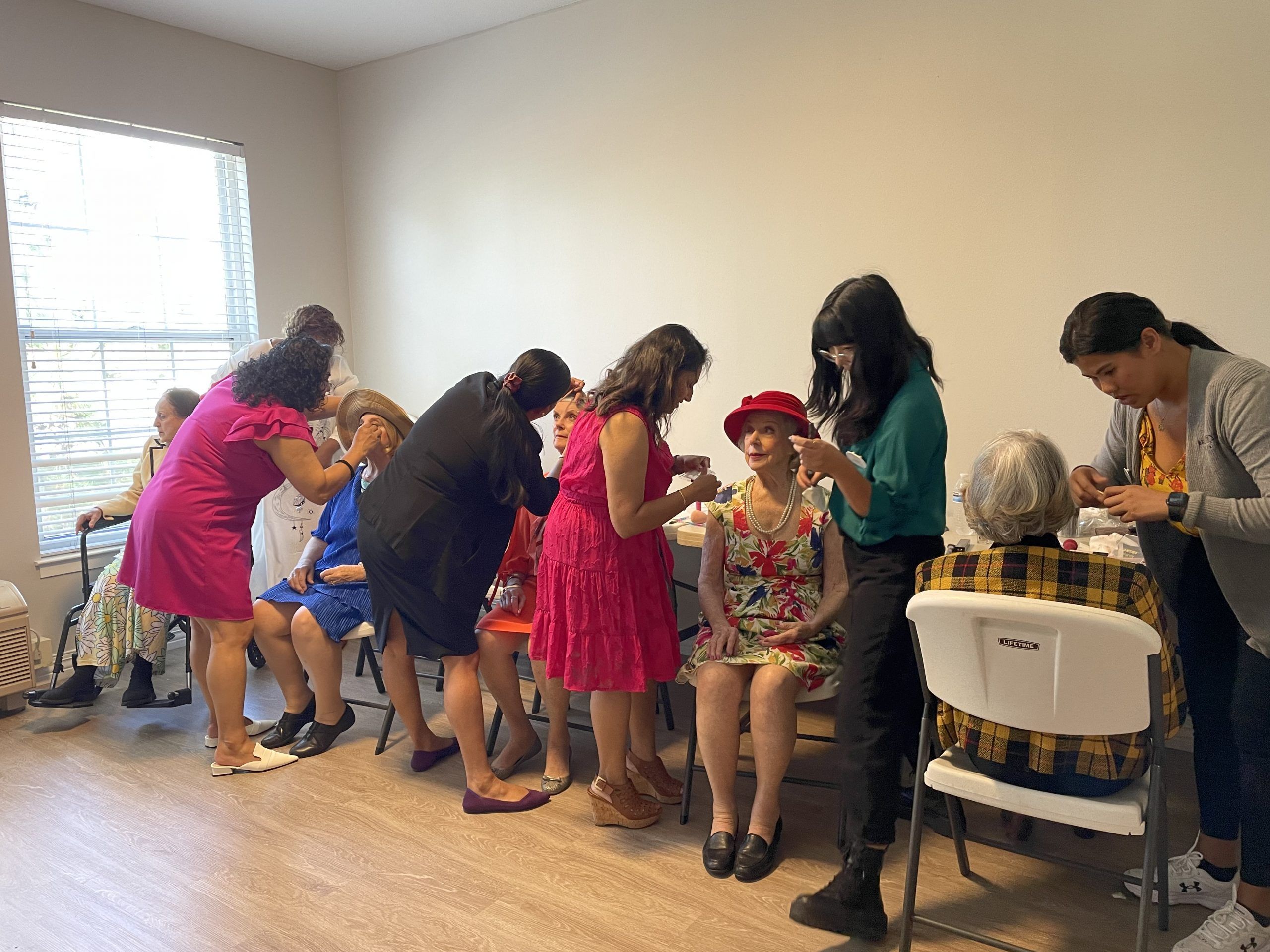“Everybody can benefit from ease in dressing,” says Singaporean brand Will&Well, which designs clothing collections for people with disabilities but also aims to appeal to anyone who ever struggled with a clasp.
Will&Well’s work was among 12 design projects displayed at Singapore Design Week’s Playground of Possibilities, an exhibition showcasing local design innovations tackling pressing contemporary challenges, curated by Jackson Tan.
On show was Will&Well’s new collection, titled Adaptable, which features clothing with easy-to-use alternatives to elements such as back zips, hook-and-eye closures, armholes and buttons – elements that everyone has struggled with at some point, even without the disadvantage of restricted mobility.


At the same time, the collection explores adaptability as a desirable quality in fashion, with two items that can be converted and worn in different ways.
The Two-Way blouse has Velcro closures on the shoulders so that a wearer with limited mobility in their arms – or their carer – can put it on without having to struggle with neck or armholes.
At the same time, it has a design that can optionally be worn back-to-front, creating extra mileage from one item of clothing.


The Convertible Cargo Pants are similar, in that the lower legs can be unzipped to turn the item into shorts.
They also feature an elastic waistband and a Will&Well innovation called HangLoops, a pair of long loops on either side of the trousers allowing them to hang off the wearer’s arms so they can lower or raise the garment without stooping down or having to grip.
The HangLoops allow some people who would previously have needed assistance with their clothing to use the bathroom on their own, which can help impart a feeling of independence and dignity.
To suit the regional context, the clothing is made with light fabrics from Japan, in summery cuts and with Asian sizing.


Will&Well uses photography of both disabled and able-bodied models on its website and promotes itself as an “inclusive” brand rather than one strictly for people with disabilities.
“We primarily design our products and services with the thought of marginalised groups, including persons with disabilities, the elderly and caregivers,” Will&Well head of communications Cheryl Tan told Dezeen.
“But the kind of inclusivity that we believe in is also one where everybody else in society, whether or not they have a disability, can benefit from ease in dressing.”
Tan added that almost everyone will struggle with mobility at some point in their lives, and that innovations that make things accessible for people with disabilities are often easier for everyone to use.


“At the end of the day, nobody can escape age,” she said. “And you’re not going to be as flexible as you were when you were younger. A lot of us won’t realise how difficult it is to do something as basic as putting on your clothes until it happens to you or your loved ones.”
“Sometimes it’s just rude, not seeing these people or not considering them in your design process,” she added.
Will&Well was started by then fashion student Elisa Lim in 2017. She had been running the business for a year making bespoke garments for people with disabilities when she decided that some of the solutions she had come up could have a broader market in ready-to-wear collections.
Now, in addition to bespoke and ready-to-wear, the social enterprise has branched out to jewellery, runs workshops, and has made a card game that aims to stimulate conversation.


They’re all elements that developed organically as Lim and Tan tried to answer the question of how to make fashion more inclusive of people with disabilities.
According to Tan, the game came about while they explored the idea of a clothing collection that would make the dressing process easier for caregivers.
“As we spoke to them and as we worked with them over the years, we realised that even if we make the clothes easier to wear, that might not solve the problem,” said Tan.
“In Singapore, your caregivers might be your loved ones or your family or your partner, or they might be hired caregivers, but if there are tensions or if the relationship between the two parties is not the most comfortable or the most open, then being vulnerable and being dressed by that person is not going to be as pleasant as it can be, even if you make the clothing easy to put on.”


Their solution was Give Me a Hand, a series of conversation cards with a gamified aspect, where players build a path of cards between each other as they also open up and share personal thoughts and feelings.
“It’s been so well received, especially in our local Asian context, because in typical Asian families, you don’t really have very close or vulnerable conversations with one another,” said Tan.
Other adaptive clothing designs have come from Kim Kardashian’s brand SKIMS, which released an underwear line with easy-access closures last year.
In an opinion piece written for Dezeen, Luc Speisser argued that designers and brands must start thinking about changes that can make their products more accessible for people living with disabilities.




